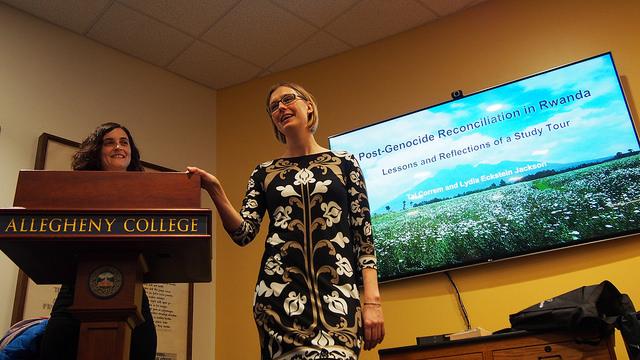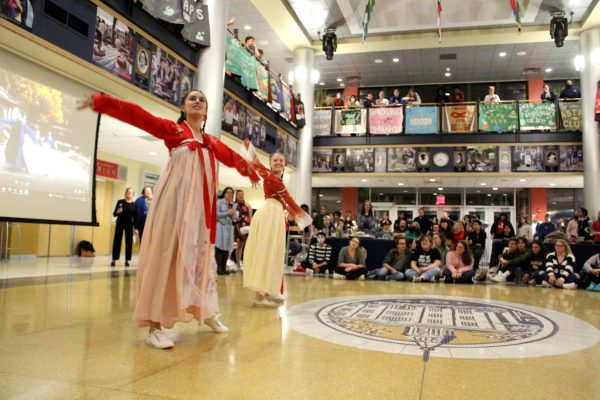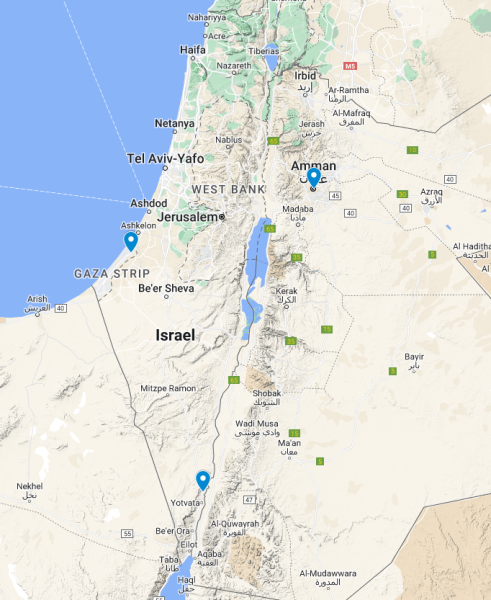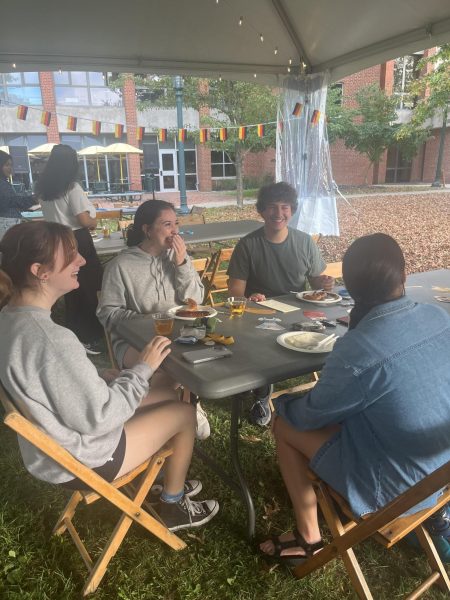Rwanda leaves lasting impression
Lydia Eckstein Jackson speaks to a room full of students, faculty and staff on Gator Day, April 5, 2016, about her recent study tour—accompanied by Tal Correm—to Rwanda where the two witnessed firsthand the post-genocide reconciliation.
Twenty-two years after the Rwandan genocide, Tal Correm, assistant professor of philosophy and religious studies, and Lydia Eckstein Jackson,
assistant professor of psychology, journeyed to the country from Jan. 29 through Feb. 7, 2016.
Correm and Jackson traveled to Rwanda through a study trip organized by Humanity in Action Denmark. The two professors received funding from the Academic Support Committee to go on this study tour.
Their journey was shared with the Allegheny community in a presentation entitled “Post-Genocide Reconciliation in Rwanda: Lessons and Reflections of a Study Tour” at the Pelletier Collaboratory on Gator Day, April 5, 2016.
The Rwandan genocide took the lives of more than 800,000 Tutsis and Hutus over the course of 100 days in 1994. Since then, the country has been rebuilding and attempting to promote unity throughout the nation.
Seeing the corpses lying there and seeing them in the position in which they died…sticks with me to this day. It was overpowering, it was overwhelming.
— Lydia Eckstein Jackson, assistant professor of psychology
Correm and Jackson’s study tour went to the Murambi Genocide Memorial, where corpses are still preserved. Both agreed that the images they saw will stay with them and that it was a moving experience.
“The most powerful moment of the trip was the Murambi Genocide Memorial,” Jackson said. “This is where the corpses are preserved in lime. Seeing the corpses lying there and seeing them in the position in which they died…sticks with me to this day. It was overpowering, it was overwhelming.”
For Correm, the trip has enhanced her understanding of the genocide in Rwanda and has given her the opportunity to bring her new knowledge to the Allegheny Community.
“It’s given me a face to face experience with the people in Rwanda that I could not have…otherwise,” Correm said. “Understanding this many levels of complex historical and political situation—like genocide—and to be there, physically, and see the state of the country…is something that you cannot substitute in any other way.”
With the collaboration between both professors departments, all parties involved hope to continue this collaboration and possibly offer a co-taught class, an experiential learning trip and also provide forums like the one held this Gator Day.
The turnout for this presentation was humbling, Correm and Jackson pointed out with a smile with attendees filling the room.
Dash Brookhart, ’17, thought this presentation looked to be the most interesting of all presentations offered on Gator Day. Through the presentation, Brookhart has a newfound interest in the Rwandan genocide and wants to further his knowledge on the subject.
“I thought [the presentation] was great,” Brookhart said. “I’ve watched a few documentaries but it was nice to get first-hand experience. I have a greater found respect for what the Rwandan people went through.”
Following the conclusion of the presentation, Correm and Jackson showed a slideshow of photos from the trip and answered student questions to wrap up their talk.









